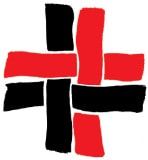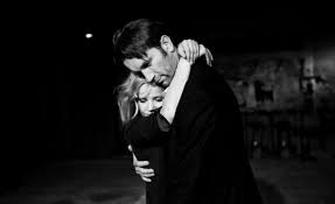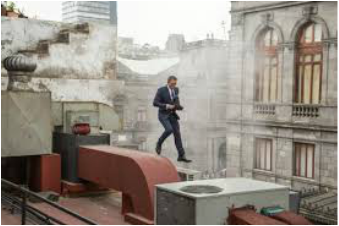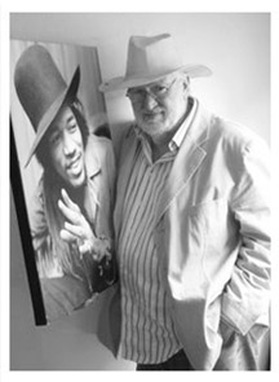Paweł Pawlikowski won an Oscar (Best Foreign Language Film) for Ida. And this year, he won Best Director for Cold War at the Cannes Film Festival. The latter award has greater resonance in this household and so we embarked on a Google search to find a showing within travelling distance and ended up, yesterday, in Oxford.
It is the first week of the Michaelmas term, and the streets and restaurants were crowded with freshers and their proud parents. But Screen 2 of the imposing new Curzon cinema was deserted apart two women of a certain age who whispered throughout the film in what we think was Polish, and probably was, because this film is set primarily in Poland during the Soviet era and it blends the personal and the political, the poetic and the prosaic in a quite mesmerizing manner.
Cold War is a musical, a love story and a political chronicle. It takes place over the course of a couple of decades, half a dozen ‘chapters’, and is punctuated throughout by music, which points to the cultural and political changes against which the doomed and destructive love affair takes place, moving inexorably to its conclusion through a series of scenes, spots of time, which illustrate the two hearts, four eyes of the affair and the film.
Paris is contrasted with Warsaw; Rock Around the Clock with the faux-folk of the Polish peasantry; the passion of the lovers with the ever-present politics - “I’m ratting on you” she tells him. “Is you or is you ain’t my baby?” asks the soundtrack.
The Best Director award is justified by any of so many delights. The ravishing, high contrast black and white. The square format. The meticulous framing.
But his greatest triumph is to draw out of his actors extraordinary performances. Tomasz Kot as the chain-smoking musician Wiktor and, particularly, Joanna Kulig as the ‘mountain girl’ Zula are superb in a New Wave kinda way, which is appropriate of course. And as each chapter addresses another spot of time, the suffering, the melancholy, of the intervening years are immediately and powerfully present.
The brevity of each scene, the short span of the movie as a whole (90 minutes), is not merely exquisite. The conciseness, succinctness, is perfection.
I doubt I shall see a more beautiful film this year. And certainly nothing more poignant than the dedication, at the end, in lower case out of black, bottom right of the screen: “to my parents”.
Today from the everysmith vaults: I’ve been re-syncing about 100GB of shows and the process has thrown up some fascinating stuff which I had forgotten I had and not played for some time. Currently, it’s the sound track from Zabriski Point – some of Jerry’s most inspired noodling.
It is the first week of the Michaelmas term, and the streets and restaurants were crowded with freshers and their proud parents. But Screen 2 of the imposing new Curzon cinema was deserted apart two women of a certain age who whispered throughout the film in what we think was Polish, and probably was, because this film is set primarily in Poland during the Soviet era and it blends the personal and the political, the poetic and the prosaic in a quite mesmerizing manner.
Cold War is a musical, a love story and a political chronicle. It takes place over the course of a couple of decades, half a dozen ‘chapters’, and is punctuated throughout by music, which points to the cultural and political changes against which the doomed and destructive love affair takes place, moving inexorably to its conclusion through a series of scenes, spots of time, which illustrate the two hearts, four eyes of the affair and the film.
Paris is contrasted with Warsaw; Rock Around the Clock with the faux-folk of the Polish peasantry; the passion of the lovers with the ever-present politics - “I’m ratting on you” she tells him. “Is you or is you ain’t my baby?” asks the soundtrack.
The Best Director award is justified by any of so many delights. The ravishing, high contrast black and white. The square format. The meticulous framing.
But his greatest triumph is to draw out of his actors extraordinary performances. Tomasz Kot as the chain-smoking musician Wiktor and, particularly, Joanna Kulig as the ‘mountain girl’ Zula are superb in a New Wave kinda way, which is appropriate of course. And as each chapter addresses another spot of time, the suffering, the melancholy, of the intervening years are immediately and powerfully present.
The brevity of each scene, the short span of the movie as a whole (90 minutes), is not merely exquisite. The conciseness, succinctness, is perfection.
I doubt I shall see a more beautiful film this year. And certainly nothing more poignant than the dedication, at the end, in lower case out of black, bottom right of the screen: “to my parents”.
Today from the everysmith vaults: I’ve been re-syncing about 100GB of shows and the process has thrown up some fascinating stuff which I had forgotten I had and not played for some time. Currently, it’s the sound track from Zabriski Point – some of Jerry’s most inspired noodling.








 RSS Feed
RSS Feed